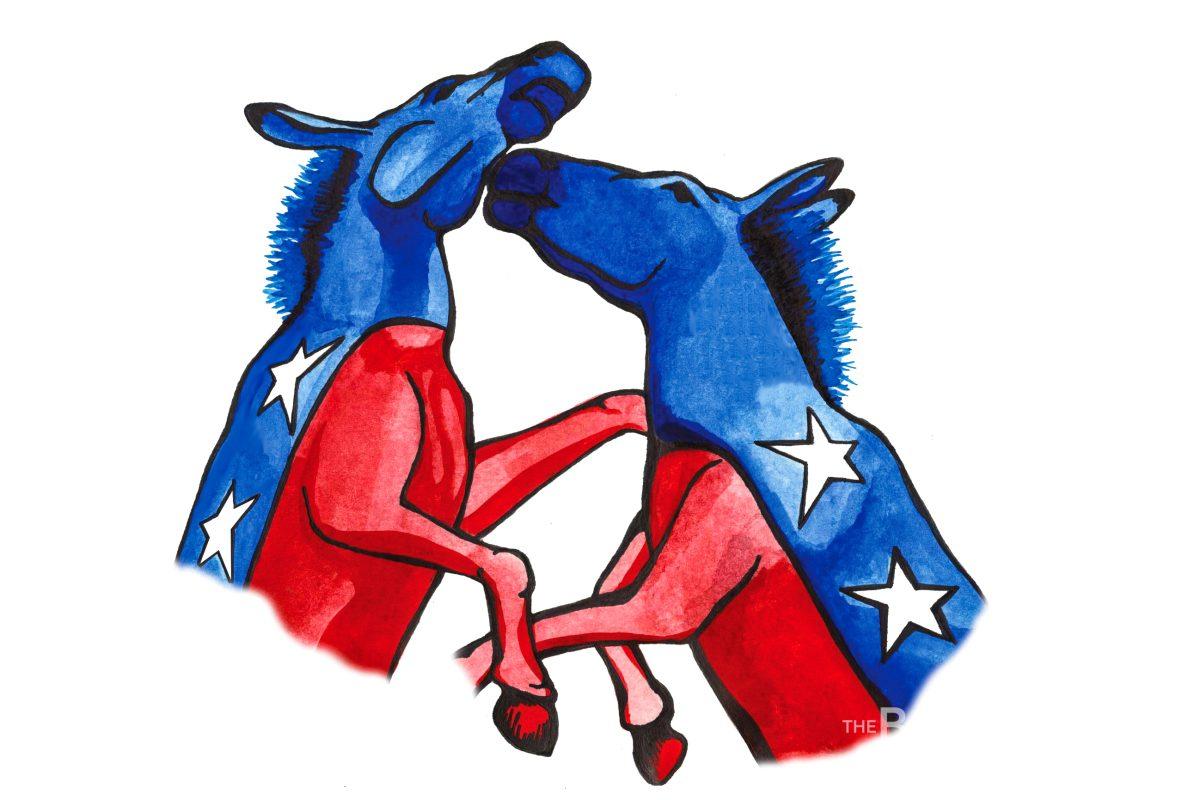On Jan. 14 at 8 p.m. Eastern Standard Time, the seventh Democratic Debate of the 2020 presidential race had only six qualifying candidates on stage at Drake University in Des Moines, Iowa. Below are five of the main points the candidates discussed during the debate.
Nuclear weapons in the Middle East
In reference to nuclear weapons, the candidates were asked if they would allow Iran to have access to nuclear weapons. Candidates such as Mayor Pete Buttigieg and Sen. Amy Klobuchar said they would focus more on foreign policy deals and try to reach out to other countries with civility, rather than trying to intimidate with military presence. The candidates strongly agreed President Donald Trump’s actions in the Middle East have been reckless and only encouraged acts of war. The candidates who spoke on this topic said they would work toward more peaceful interactions with this region.
Trade
Many candidates disliked Trump’s way of trade, especially in light of his new USMCA trade agreement with Canada and Mexico. Sen. Elizabeth Warren said the trade deal was not beneficial to the farmers and laborers, who deserve more from an international trade deal, than what Trump’s deal would offer. She also said the corporations have been a major influence in trade deals in the past, which diminishes the benefits of trade for all other Americans. Likewise, Klobuchar said manual workers are punished in the current trade deal, such as the shut down of many factories across the United States. Trade deals are supposed to improve the GDP, according to Tom Steyer, but in recent years, these deals are only improving the GDP of powerful corporations. Across the stage, the candidates agreed the USMCA deal was not in the best interest of the United States.
Healthcare
Candidates such as Sen. Bernie Sanders endorsed Medicare for all, which he said would ensure all people regardless of socioeconomic status would receive healthcare. Former Vice President Joe Biden suggested revamping Obamacare. Sanders responded to this by saying it would exponentially raise taxes for lower income families, and the selfishness of the healthcare industry is the root of the healthcare crisis. Klobuchar agreed with Sanders about the state of the healthcare industry and said healthcare should give more attention to long term care. Warren emphasized the decline in affordable healthcare during the Trump administration, which the other candidates agreed with. However, there was some criticism of Buttigieg’s Medicare For All Who Want It plan because it would force people into accepting this healthcare plan, thereby forcing them to pay for it, even if they did not opt to use this plan. To summarize, all candidates agreed healthcare needed to be more accessible, but disagreed on the method in which to do so.
Childcare and education
Much of the childcare discussed was related to infant care and assistance for single parents. With the discussion of children, however, comes the issue of education. Buttigieg and Warren said children of wealthy families should not be the only ones with access to a college education. Warren proposed higher taxes would help distribute more money into education and allow lower income families more opportunities to receive some form of financial aid.
Climate change
Buttigieg and Steyer both referenced the states of the current bushfires in Australia, stating there is more than enough proof of climate change to encourage the government to take action and implement laws that protect the environment. Sanders said the most important issue regarding climate change is the need to move away from fossil fuels. He said oil companies’ profits should not outweigh the health of the environment and all people.
Five main points discussed at January democratic debate
January 15, 2020
Photo by FILE
The Democratic debate took place on Friday, Feb. 7.
0
Donate to The Battalion
Your donation will support the student journalists of Texas A&M University - College Station. Your contribution will allow us to purchase equipment and cover our annual website hosting costs.
More to Discover









